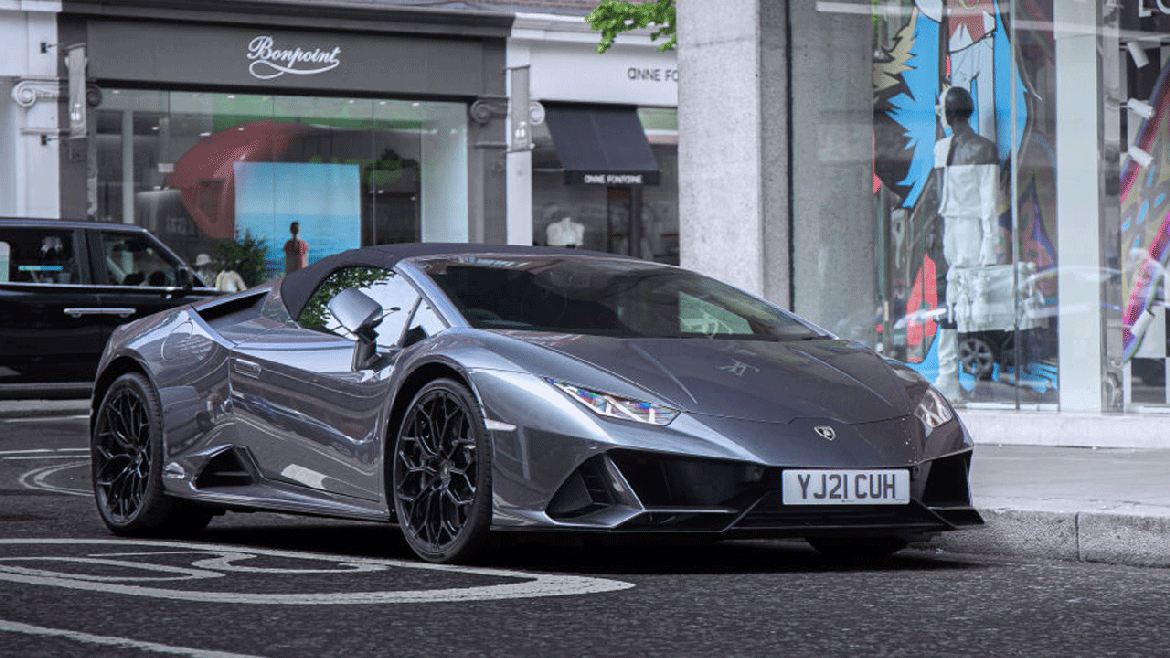As PPP fraud grows and people are facing charges, here's a look into why people may be using the money on luxury cars.
During the coronavirus pandemic, many small businesses struggled to stay afloat and took out COVID-19 Paycheck Protection Program (PPP) loans to help, but reports of PPP fraud are now on the rise, including at least three people who were arrested for allegedly fraudulently obtaining large sums of money and using some of it to buy luxury cars.
In Florida, a man pleaded guilty after he fraudulently obtained $3.9 million in PPP loans, and used $318,000 of the money to buy a Lamborghini. David T. Hines, 29, of Miami, pleaded guilty to one count of wire fraud and is scheduled to be sentenced on April 14, according to authorities.
A California man is accused of getting $5 million in COVID-19 relief PPP loans and buying a Ferrari, Bentley and Lamborghini. Mustafa Qadiri was arrested in May and charged with four counts of bank fraud, four counts of wire fraud, one count of aggravated identity theft and six counts of money laundering, according to the Department of Justice. Qadiri has pleaded not guilty.
A third man in Texas, Dinesh Sah, also admitted that he submitted 15 fraudulent applications and sought approximately $24.8 million in PPP loans, and you guessed it, he also bought luxury cars.
But what would cause someone to buy a flashy car with stolen money? Dr. Colleen Cira, a licensed clinical psychologist, said there could be various reasons.
"It depends on who we're talking about," Cira told Inside Edition Digital. "If the people buying luxury cars with PPP loans are CEOs, very rich and wealthy corporations, then to me this just feels like yet another example of corporate greed and what happens when power and privilege goes unchecked.
"But many others with small businesses have been stressed during the pandemic, and can be living in a state of a stress response, affecting decision making and judgment," Cira said.
A PPP loan may be a moment of relief for them, she said.
"I'm also wondering if this is just them sinking into that relief, which is not to say it's OK," Cira said. "We don't have the ability to use our frontal lobe when we're caught up in the stress response, and again that's not everybody. This could be purely greed, but when we're really caught up, especially in a chronic stress response like COVID, we can fall into the trap of like, whatever is easiest, whatever feels good because we're just needing to soothe their nerves."
No one can be sure of the exact reasoning, why someone would buy a flashy car after obtaining money illegally, but the status luxury cars like Lamborghinis represent in society may itself be a clue.
Lamborghinis have for a longtime been known as the ultimate sports car, dating back to the eighties in the United States. The car, specifically the Lamborghini Countach, gained fame after appearing in the film "Cannonball Run" in 1981.
"It made an entrance like almost no other car. And I think the DNA of that exists today," Mike Guy, editor-in-chief of Road & Track, told Inside Edition Digital.
Now, the Lamborghini Huracan is just as popular, and still a symbol of wealth and status, but also more attainable than the older model, at costs starting around $200,000.
"The Huracan is actually a really fantastic sports car. It handles really well, and it's got a great engine. It looks great," Guy said. "It ticks all these boxes for the popular imagination. You show up at a club and this is the car that everybody looks at. It captivates."
So, while it could be a want for status, a moment of greed or a stress response, it is still likely to land you in jail.
Thomas Smith, who lives in Wisconsin, will be serving time in prison for being the mastermind of PPP fraud scheme by diverting money from struggling businesses to fake companies. Smith will serve five years in prison and has been ordered to repay nearly $1 million.
"I guess I was just greedy," Smith told his lawyer, Michael Steinle, according to the Milwaukee Journal Sentinel.
Related Stories






